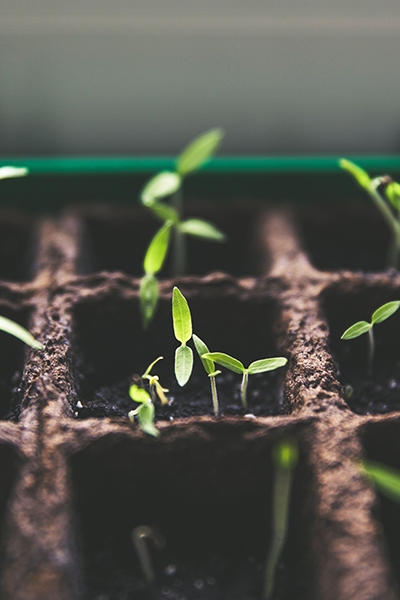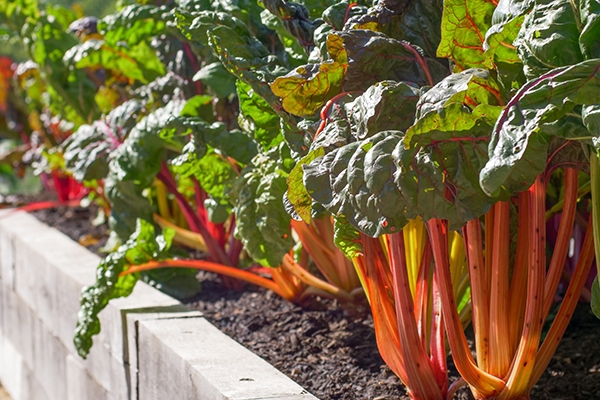Guide To Buying Organic Food On a Budget
Organic farming is better for the planet so we should all be buying organic food. However money is often a constraint so it’s not an option for everyone. With a little planning, it can be done. Here is our guide to buying organic food on a budget.
It is widely known that organic foods tend to be more expensive than non organic food. However there’s a good reason for it. The growing, production and commercial standards are much higher than non organic, and require a bigger investment. (Learn more by listening to the organic episode of Style With Substance Podcast.) An increasing amount of us are looking for ways to help the environment by shopping for organic products, but it doesn’t have to cost the earth. Of course in an ideal world we would simply buy organic products and organic groceries without looking at the price tags. However you will most likely end up in a very expensive bill. For many of us it’s not possible to do that, but that doesn’t mean we can’t eat organic food when we’re on a budget. It does however, require a more strategic approach. For example, plan your meals in advance, and shop seasonally. Ultimately it will repay you with healthy, natural food without emptying your wallet every month.
As our friends at the Soil Association point out, it’s important to realise that “when you do spend a little more on an organic product, you’re casting a vote with your wallet. Your opting into a fully traceable, natural food system with no hidden costs. One that prioritises the highest standards of animal welfare, supports wildlife and creates living soils and a healthy ecosystem for generations to come.” Sounds great doesn’t it? That being said, with regards to your wallet, balance is key! Here are our top tips for buying organic food on a budget.

Guide To Buying Organic Food On A Budget
Shop Locally
Shopping at your local farmer’s market is a great starting point. While it’s true the organic sellers are often more expensive, markets allow you to have a conversation with the growers directly. Get to know the regulars and local farmers. Try bartering for a better deal for a larger volume. Or choose organic vegetables that look a bit wonky (but taste just as good) for less. This works especially well if you can buy from organic farm shops. You’ll be surprised at how happy they’ll be to have clients that reach them directly, and you can have great food for a bargain.
Buy seasonal organic products
This is one of the most important steps to take, as it has a dramatic effect on lowering our carbon footprint too. Seasonal fruits and veggies are often much cheaper than out-of-season goods, as there is often a lot left over once the season ends. You can keep a seasonal calendar on your fridge to check what organic foods are available week by week. Remember that you can make great deals with local growers and farmers when the season is about to end too. A perfect opportunity to batch cook some delicious soups and sauces to freeze.

Grow your own organic produce
Ok, this is a hard one to do, but if you have a garden, terrace or even a windowsill, you’ll be surprised by how incredibly cheap and exciting it is to grow your organic fruit and vegetables. The key thing to remember is not to use chemical pesticides or fertilisers. Of course, you don’t have to turn your garden into a farm, but you can start with options that are easy to grow. Why not start with lettuce, carrots, tomatoes and radishes. All you need is a container, some compost and seeds, and you’re set.
If you have some space, tomatoes grow easily in a pot in satisfying quantities, or you can at least grow your favourite herbs. The ones you find in grocery shops are usually non-organic, overpriced (look at the price per weight), and often end up being largely unused in your refrigerator. And don’t get us started on how easy to make and tasty homemade pesto is.
Keep in mind the ‘Clean Fifteen’
The Environmental Working group have released a list called the ‘clean fifteen’, aka the vegetables that need the least pesticide use to grow. This means that if you can’t afford to buy all organic, then these fruit and vegetables are the next best thing, whilst still being low in pesticide use. Included on the list is; avocados, sweet corn, pineapples, cabbage, peas, onions, asparagus, mangoes, papayas, kiwis, eggplant, grapefruit, sweet melon, cauliflower and sweet potatoes.
Buy frozen organic food
We don’t suggest you buy pre-cooked ready meals frozen, but when it comes to organic vegetables and fruits, frozen options are often cheaper than fresh. In addition, they can be very helpful when you don’t have a meal plan. Keep a good stash of options in your freezer for when you need them. They’re a healthy option too. Some frozen veggies don’t see their vitamin values altered by the process, as freezing preserves their vitamins and nutrients.
Find the best organic box schemes
It’s now easier than ever to sign up for an organic food box, with plenty of options around. They can be delivered straight to your door without any fuss. The price you pay varies depending on the type of food you’re ordering and how much you need. For example, a small vegetable box with Abel and Cole is £13.25 (plus delivery), and this includes eight seasonal veg options. Whereas a large fruit and veg box will give you eight veg plus three seasonal fruit options for £27.50 (plus delivery). If it’s still a bit pricey, why not share the cost and the goodies with friends or family?

Money saving tip: remember to search for deals, as some companies offer discounts to new and returning customers. If you show interest but don’t follow through with the purchase, then you may find you get an email with an offer enticing you back. Alternatively, local box schemes are not always the cheapest option, but they will provide a good base of ingredients for the week, save you time shopping around and support local farms. Try to choose one without potatoes, as these can be bought easily in large quantities and they last a long time. In this way, you will have better variety, and you can choose seasonal veggies without having to spend a fortune. Check out the Soil Association to find a local scheme near you.
Eat less meat
This tip generally helps to reduce your food bills. Organic meat is much more expensive than organic vegetables and non-organic meat. In addition it will still have a large carbon footprint as meat is notoriously energy intensive to produce. Why not reduce the amount of meat you eat and replace it with organic vegetable proteins, such as legumes and lentils. You don’t have to go fully vegan if you don’t want to, but a little change in lifestyle can be good for your health as well as the planet.
Buy organic food in bulk
If you find a good deal for something that won’t expire quickly, why not bulk buy to take advantage of the lower price for longer. Dry and tinned goods make for the best options as they have a long life. Buying in this way will save you time and money. Remember to only buy what you use a lot of, instead of foods you wouldn’t normally buy. A this would just be a waste of money. It’s only a good deal if you will eat a lot of it.
Use apps, newsletters and loyalty cards
This method requires time and effort, but you can find great deals because the majority of supermarkets in the UK offer organic food as well as loyalty schemes. Sign up for newsletters and make sure to keep loyalty cards in your wallet. LatestDeals has a great app to check promotions, while Olio allows you to share your organic food with neighbours. These are small, everyday changes that in the long term, will help to save you money.
by Cecilia Mezzi
Did This Put A Smile On Your Face? Why Not Subscribe?
If you enjoyed this then theres plenty more on our email newsletters that you'll love. Whether you're a sustainable newbie or an eco conscious pro, our bi monthly emails will inspire you to live sustainably and ethically.
Disclaimer: The people and models in the images featured are not associated with The Vendeur and do not endorse it or the products shown. This post may contain affiliate links. Prices correct at time of publishing.





Trackbacks/Pingbacks